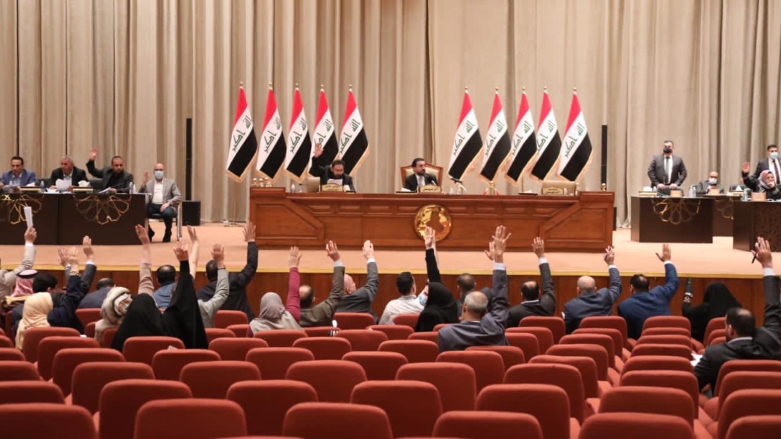Iraq, KRG reach deal on draft budget, awaiting final approval from national legislature
“...while this news is notable, I’d not make too much of it. It means nothing from a legal standpoint without parliament’s approval.”

ERBIL (Kurdistan 24) - Iraq’s finance minister Ali Allawi on Saturday announced an agreement with the Kurdistan Regional Government (KRG) on the 2021 draft budget bill. However, experts say the Iraqi parliament will make the final decision on the dispute.
The Iraqi finance minister announced the news after extensive negotiations in Baghdad with a KRG delegation headed by Deputy Prime Minister Qubad Talabani.
“The delegation is currently discussing its allocations for the year 2020,” Allawi said in a statement. He added further that the Iraqi parliament might discuss the draft budget next week.
In mid-November, the Iraqi parliament passed a budget deficit law with a majority of its members. Kurdistan Region lawmakers boycotted the session over disagreements about a clause they described as “unfair” for the autonomous region’s share in the federal budget.
The controversial law stipulates handing over the region’s oil and non-oil revenues to the federal government. Qubad Talabani indicated that the regional government was ready to abide by this condition.
Oil and budget have been the major source of dispute between the central government and KRG since the region began to export its oil independently despite Baghdad’s opposition.
Due to Baghdad’s refusal to release funds allotted for the payment of salaries of the autonomous region’s employees, the Kurdistan Region has suffered a severe economic crisis amid the COVID-19 pandemic. This led to protests in the Sulaimani province that ended last week.
In early December, the KRG announced it had borrowed 205 million dollars to pay the salaries of the autonomous region’s employees.
Kirk H. Sowell, the principal of Middle East-focused political risk firm Utica Risk Services, told Kurdistan 24 that is unlikely the latest deal will resolve the disputes between Baghdad and Erbil.
“The Iraqi Parliament recently amended the borrowing law to take a very strong stand against independent KRG exports, and it will be up to MPs whether to reject or amend this,” he said.
“And the budget is one of those laws where it has wide latitude to amend, and so they could change it completely, as they did with the borrowing law. So while this news is notable, I’d not make too much of it. It means nothing from a legal standpoint without parliament’s approval.”
Sowelll noted that if the Iraqi parliament approves the deal and the KRG complies with it, the agreement could be a meaningful step forward. He also explained that Baghdad, under former prime minister Adil Abdul Mahdi—who resigned amid unprecedented nationwide protests in late 2019—, made “half-payments” to KRG but then completely cut them off starting early 2020.
However, under Kadhimi, who came into office in May, the federal government has made payments to the KRG “every other month.”
Iraqi Currency Devalued
The Iraqi finance minister also announced today that the government was taking steps to devalue the currency, raising the exchange rate from one US dollar to about 1,450 Iraqi dinars.
Another Iraq analyst, the author of the Musings on Iraq blog Joel Wing, told Kurdistan 24 that the “draft 2021 budget relies upon monetary policy (devaluing the dinar) rather than the spending cuts the Al-Kadhimi government talked about in its White Paper on economic reform.”
Iraq’s economy, and indeed that of the Kurdistan Region, has suffered in recent years due to the global fall in oil prices, the war against the so-called Islamic State, and now the COVID-19 pandemic.
“It (Iraq) still has a huge budget deficit and relies upon some questionable predictions about revenues,” Wing added. “So it’s likely Baghdad will still have problems paying its bills and salaries next year.”
Editing by Khrush Najari